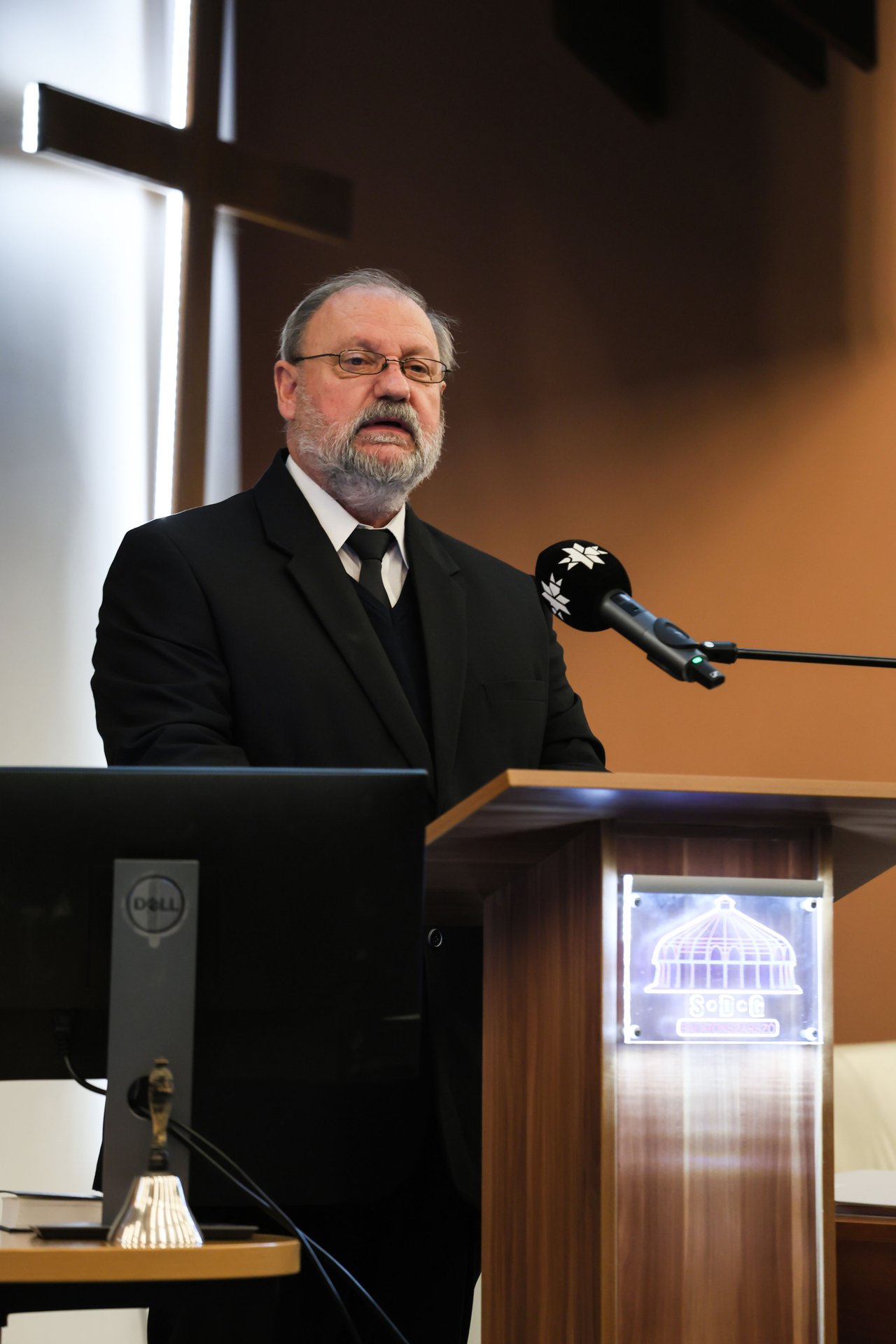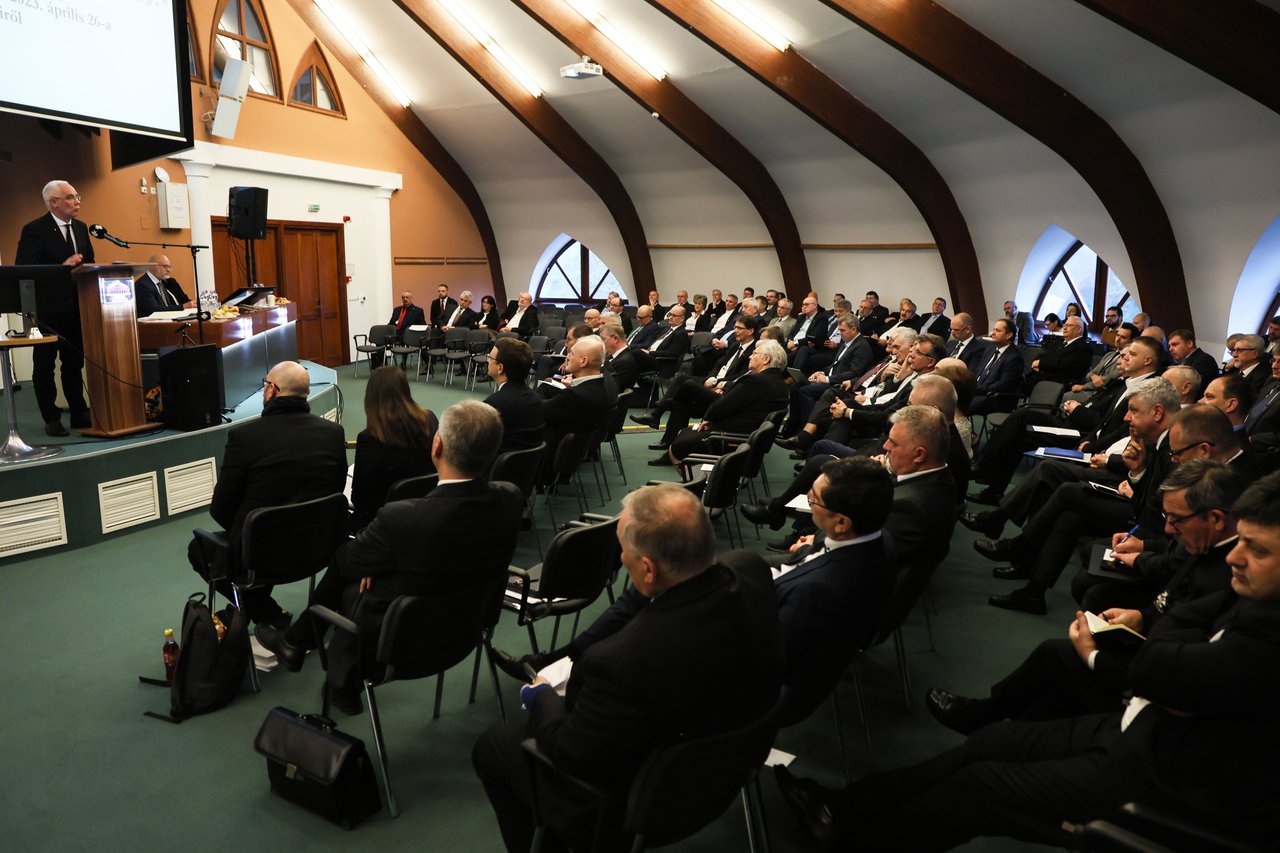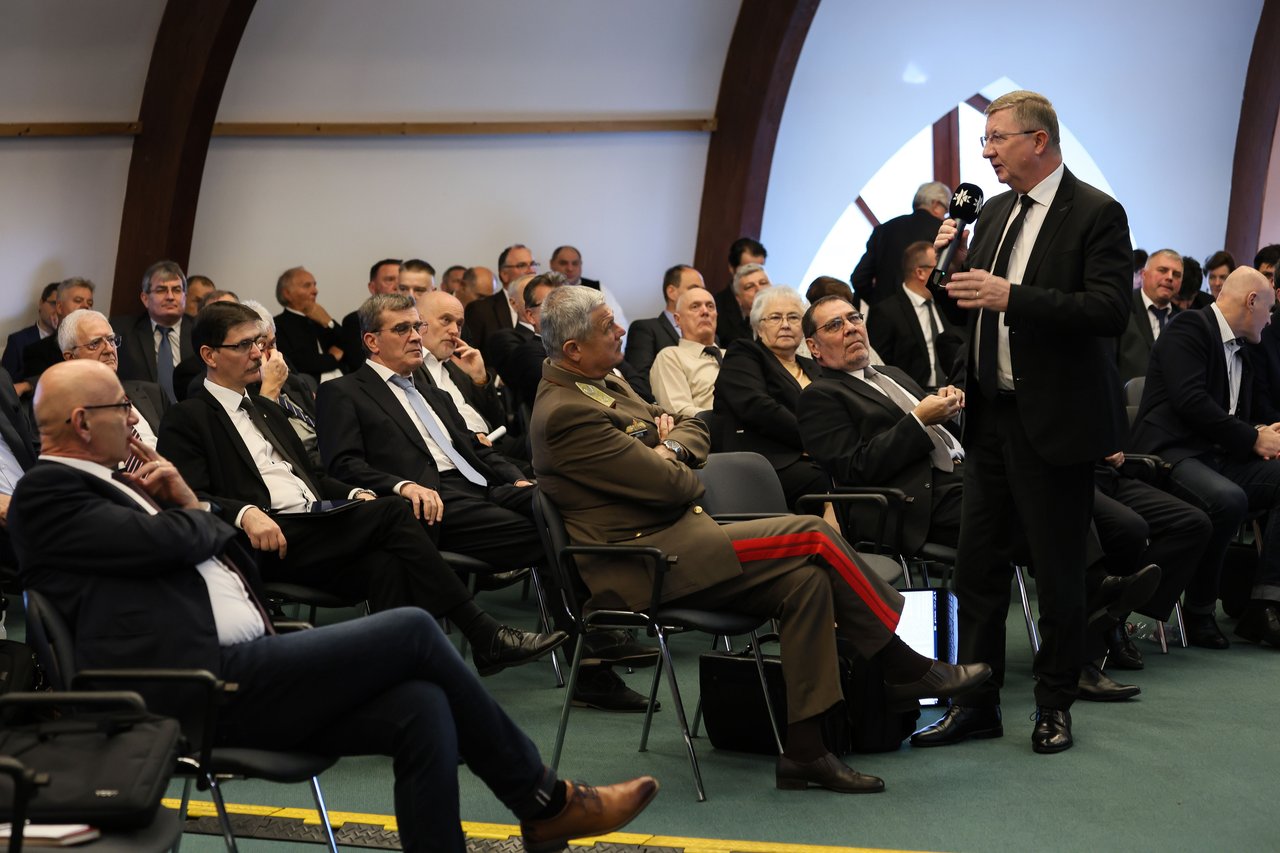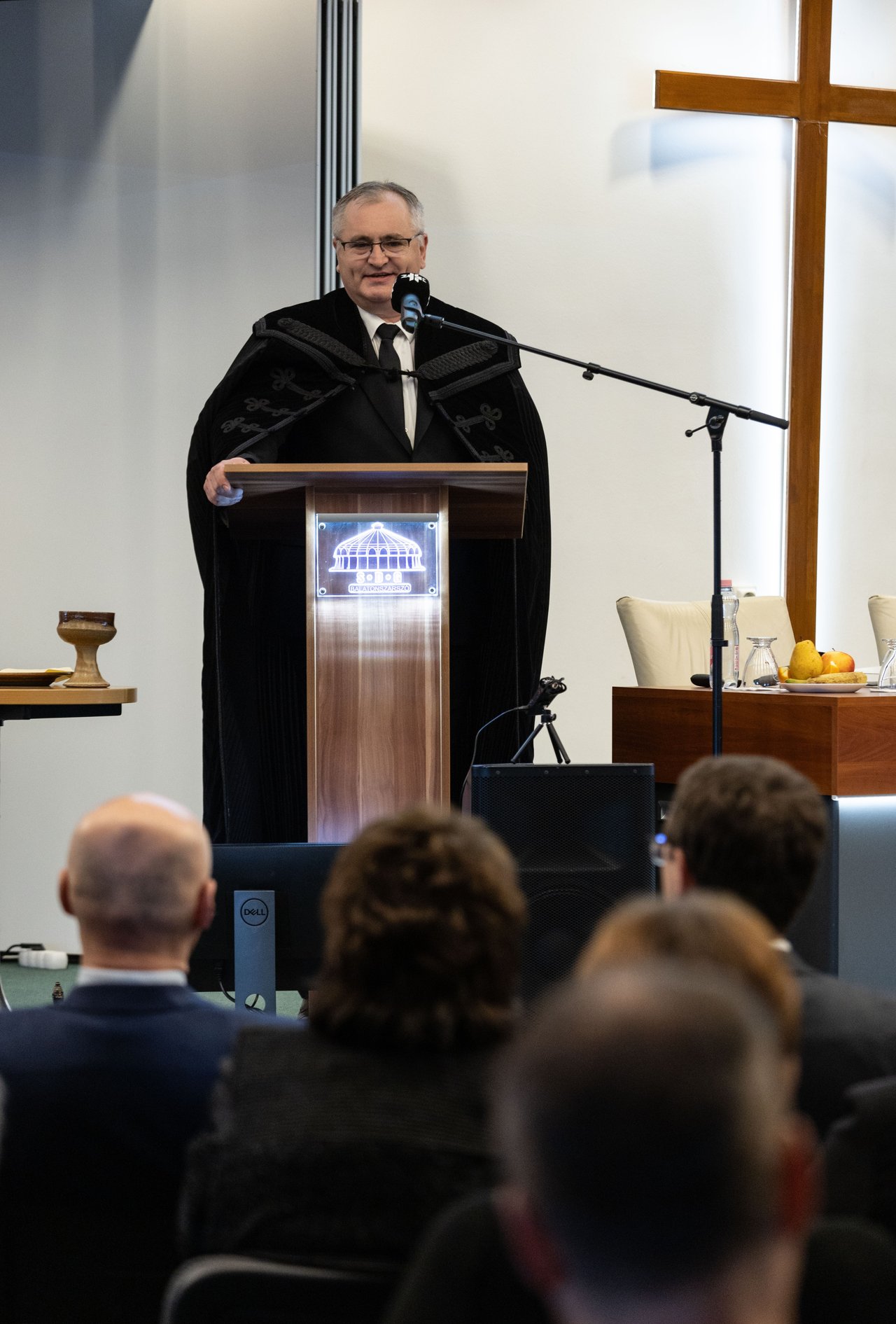On November 6-7, the General Synod of the Reformed Church in Hungary held its two-day session in Balatonszárszó. The participants discussed in detail the Law on the legal status and service of ministers, but also the census data, youth mission, the Year of the Pastoral Profession, and the upcoming "Year of the Living Word" announced for 2024.
The opening devotional was given by Tamás Németh, Rector of the Pápa Reformed Theological Seminary, based on the biblical passages on spiritual hunger and thirst in the New Testament (Mt 5:6) and the Old Testament (Am 8:11-12). He pointed out that the mission of the Church is to proclaim the gospel, even if many people today seek to replace the hunger of the spirit with the indulgence of the flesh and do not turn to the Lord and hear the truth. That is why the mission of the Church, proclaiming that the Word of God is alive and active today, would be emphasised.

Report of bishop Zoltán Balog, Ministerial President of the Synod
In his opening speech, Bishop Zoltán Balog reported on the past six months. He referred to the census data, which called the Church to introspection and, at the same time, shed light on missionary tasks. In the context of events in the world and the situation in Ukraine, Bishop Balog pointed out that the four Reformed bishops of Hungary will take part in a retreat in Beregszász (Berehovo, Ukraine) at the end of November to support local Reformed Christians and pastors. He pointed out that the closing event of the Year of the Pastoral Profession will be the national meeting of Hungarian Reformed pastors on January 27 2024, in Budapest, wherein pastors from all over the Carpathian Basin are expected to attend. The event will also be the opening of the Year of the Living Word, which is announced for next year. The Bishop also spoke about theological education, further training, and the importance of pastoral care for pastors. In his summary, Zoltán Balog spoke about the expected developments at the Károli Gáspár Reformed University and the role of the Károli Junior Academy, which provides a unique opportunity to help young people about to enter the university to make a decision that will determine their future.
The Bishop noted that church youth events are increasingly conscious of the need to reach out to young people with their programmes. They play an important role in awakening a desire for a pastoral vocation in young people. However, youth groups and school chaplains also play an important role in recruitment. The Bishop recalled that the Common Synod of the Hungarian Reformed Church adopted the Hungarian Reformed National Strategy for the Carpathian Basin in the summer. He also mentioned the role of the Protestant Military Chaplaincy, which is celebrating its centenary this year. At the end of his report, he referred to the law on the legal status and service of ministers, which aims to clarify the legal status, rights, and duties of pastors.

Detailed Discussion of the Law on the Legal Status and Service of Ministers, Reports, and Decisions
The Synod also discussed in detail the law on the legal status and service of ministers. In her introduction, Bernadett Szólláth, legal advisor of the Synod, pointed out that during the legislative work, there had been a very broad consultation on the text of the draft law. The bill will be presented for a second and third reading at the spring session.
At the meeting, Áron Ablonczy, head of the Youth Department of the Synod Office, reported on this year's Csillagpont (Starpoint) Festival, which aims to bring evangelical renewal and conversion into the lives of Hungarian youth through the love of God and the power of community, thus strengthening local congregations.
András Gér, general secretary of the Synod, reported to the participants on the thematic year of 2023, the results of the Year of the Pastoral Profession. He spoke on the importance of recruitment and training, and mentioned the importance of the pastoral career and pastoral care. He highlighted the development of the Gyökössy Institute, which, although a multi-year process, aims to help pastors in a comprehensive and solution-focused way.
Sociologist Bálint Duráczky presented the census data. In his opinion, it is not surprising that the number of Reformed believers or believers belonging to any historical denomination is declining. Regarding the territorial distribution, it is worthwhile for the church to find out where and what kind of missionary activity is needed.
The theme of the "Year of the Living Word" announced for 2024 was presented by general secretary András Gér, project leader Bendegúz I. Kovách, and Levente Zoltán Hajdú, director general of the Mission Service. They said that through events, social media campaigns, and community mobilisation, they want to make it visible to everyone that the Word of God is alive and can bring about change in the world.
The Synod adopted the Regulation on the Procedures of the Monitoring System of Social Service Providers in the Reformed Church of Hungary, which aims at transparency and allows for central control of church-run social diaconal institutions. The members also decided on the 2023 diaconal awards.

On the second day of the Synod, a communion service was held, where László Harangozó, Bishop of the Reformed Christian Church in Serbia, preached. He first read from the 9th chapter of the first book of Samuel, when Saul is sent by his father to seek his donkeys. Then he read verse 12 from the first chapter of James: "Blessed is the man who endures temptation, for after he has endured the test, he will receive the crown of life which the Lord has promised to those who love him." László Harangozó encouraged those present not to give in to outside influences, not to be influenced, not to let their lives be determined by what others say about them, but to hold fast to God's Word with faithfulness.
